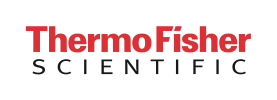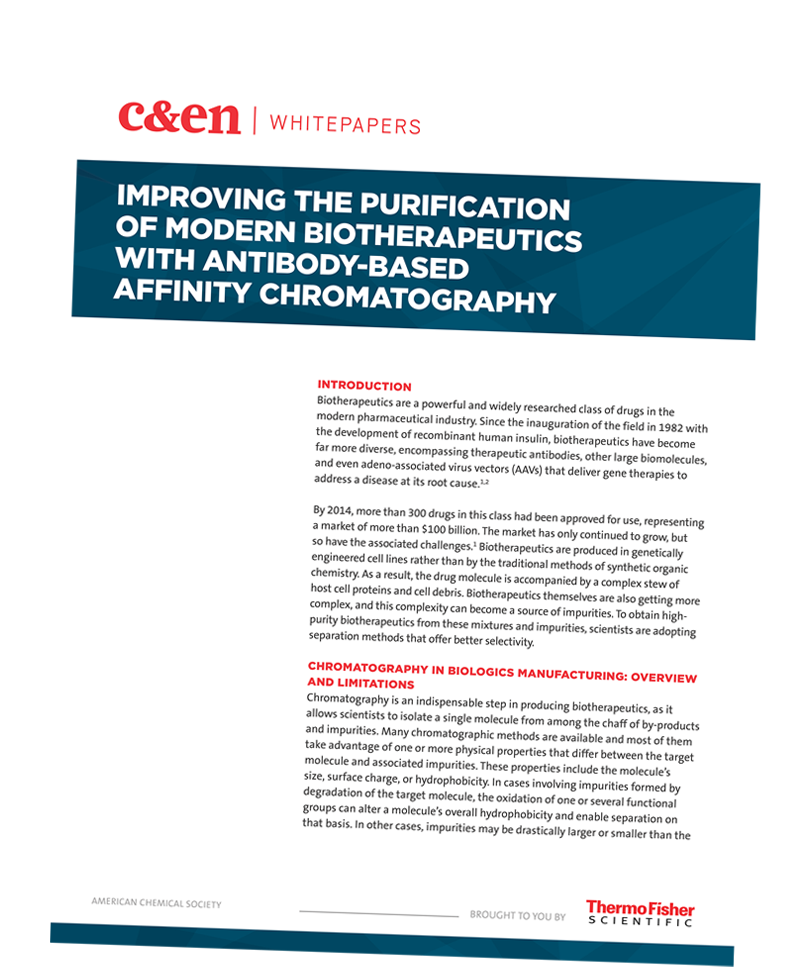
Improving the purification of modern biotherapeutics with antibody-based affinity chromatography
Brought to you by Thermo Fisher Scientific
Overview
Biotherapeutics are a powerful and widely researched class of drugs in the modern pharmaceutical industry. Biotherapeutics are produced in genetically engineered cell lines rather than by the traditional methods of synthetic organic chemistry. As a result, the drug molecule is accompanied by a complex stew of host cell proteins and cell debris. Biotherapeutics themselves are also getting more complex, and this complexity can become a source of impurities. To obtain high-purity biotherapeutics from these mixtures and impurities, scientists are adopting separation methods that offer better selectivity.
This whitepaper will explore the limitations of biologics manufacturing and protein A affinity chromatography. The benefits of antibody-based chromatography for biotherapeutic purification are described, including several case studies.
Key Objectives:
- Challenges in purifying modern biopharmaceuticals from among host cell proteins.
- Recent developments in affinity chromatography making the technology applicable to a wider range of compounds.
- Development process of an antibody-based affinity chromatography resin.
- Advantages of single-domain antibodies as an affinity ligand
Brought to you by:


Please complete the form to download the whitepaper.
*I can withdraw my consent and unsubscribe at any time by e-mailing reply@thermofisher.com . I acknowledge Thermo Fisher Scientific will process my Personal Information according to its Privacy Policy , which includes information about my rights. https://resource.thermofisher.com/page/DB_17_0119/?cid=fl-legalentities
*By submitting this form, you agree to receive more information on related products and services from the American Chemical Society (ACS Publications) via email, in accordance with the ACS Privacy Policy .
Copyright © 2025 American Chemical Society | 1155 Sixteenth Street NW | Washington, DC 20036 | View our Privacy Policy